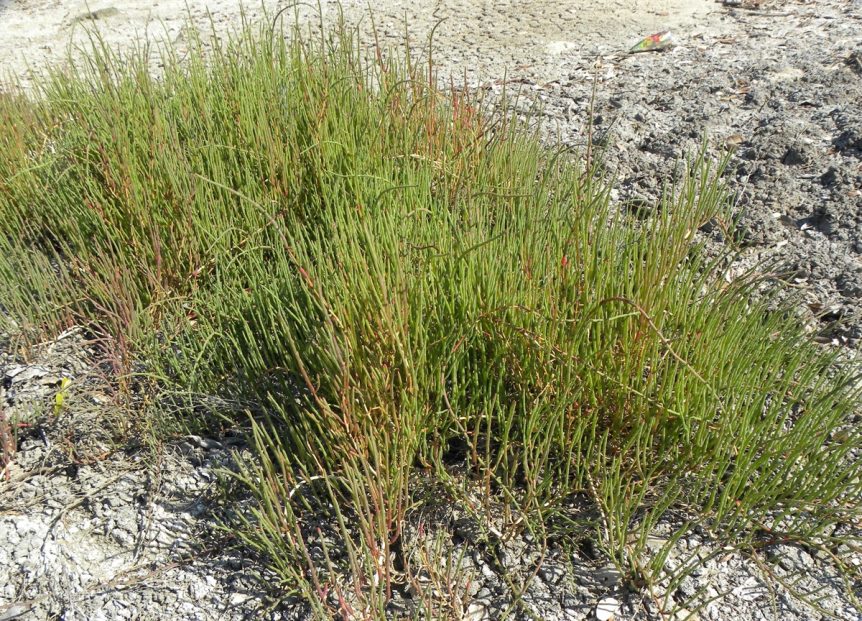Ethiad Airways made the first commercial flight on fuel made from plants grown in saltwater by Khalifa University. Burning jet fuel made from halophyte plants grown in salt water and fertilized by the shrimp and fish living in the salt water enabled a flight from Abu Dhabi to Amsterdam on January 16. It was the first flight on pure biofuels, even though commercial airlines have made over 160,000 flights on blended fuels since 2011. Dennis Bushnell Predicted This Chief Scientist at NASA Langley Dennis Bushnell shared information on halophytes, plants that grow in salt water. He presented such ideas at a symposium your editor attended six years ago, and his vision is now being realized. He points out that 70 percent of all water in the world has a high saline content and over 40 percent of all lands are arid and cannot sustain conventional agriculture. You can see a slide show of his presentation on halophytes here. An Encompassing …
Desert + Salt Water = Jet Fuel
Masdar, the United Arab Emirate’s clean energy development program, is hosting Solar Impulse as it prepares for its around-the-world flight. Beyond that, Masdar comprises five business units: Masdar Capital, Masdar Clean Energy, Special Projects, Masdar City and Free Zone, and Masdar Institute, “an independent, research-driven graduate university. Masdar Institute of Science and Technology is a multi-faceted research center, which although small at this time, seems to be fairly prodigious in the output of patents, patents pending and academic papers. The Institute heads a program to use “coastal seawater to raise fish and shrimp for food, whose nutrient-rich wastewater then fertilizes oil-rich halophyte plants that can be harvested for aviation biofuel production.” Halophytes, as those who’ve listened to or read Dennis Bushnell’s comments will know, thrive in harsh conditions including a diet of saltwater. Working with a consortium including Masdar, Etihad Airways, Boeing and Honeywell UOP, and later joined by aerospace companies Safran and GE, Masdar Institute’s initial laboratory-scale demonstrations could …
Measuring Up To Standards
ASTM International, formerly known as the American Society for Testing and Materials, develops “international consensus standards” for many industries, using input from its members in many fields and disciplines. Their D-7566-11 “Standard Specification for Aviation Turbine Fuel Containing Synthesized Hydrocarbons” governs what can be put into jet and turbo-prop aircraft. Updated in July 2011, it now allows the use of biologically-derived fuel “without the need for special permissions,” according to SAE International, itself a standards organization, and as reported by Patrick Ponticel. United Airlines was quick to take advantage of the revised standard, using “Solazyme-supplied algae oil that was refined into jet fuel by Honeywell’s UOP division near Houston. The blend used for the November 7, Boeing 737-800 flight was 40-percent Solazyme’s Solajet and 60-percent petroleum-derived commercial jet fuel (Jet-A).” SAE explains that, “Under the ASTM standard, up to 50-percent bio-derived synthetic blending components can be added to conventional jet fuel. These renewable fuel components, called hydroprocessed esters and fatty acids …

